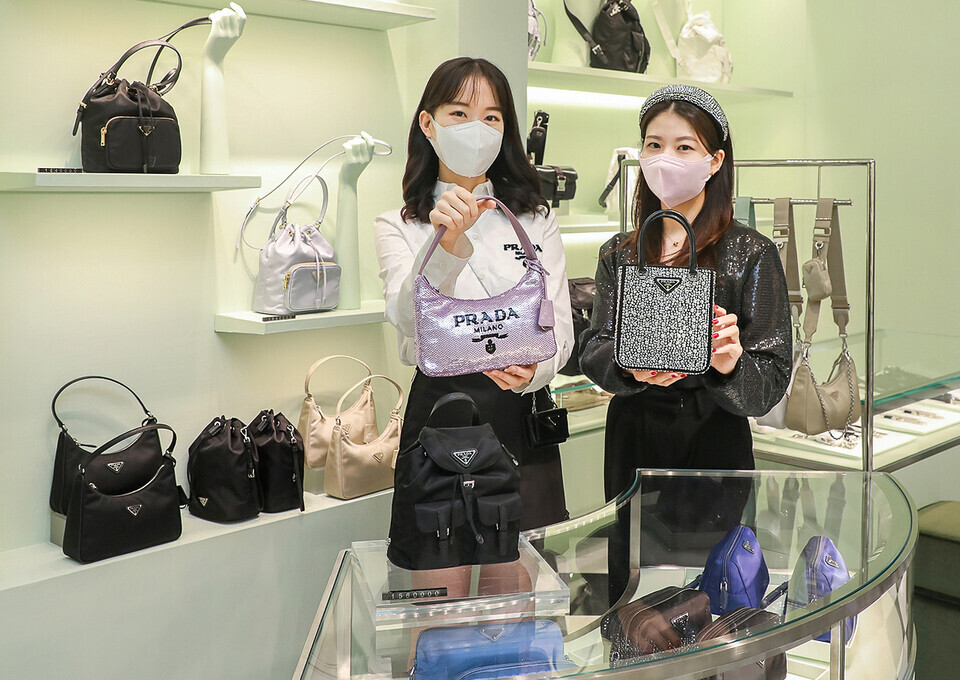
SEOUL – In a bid to expand their customer base and boost sales, South Korean e-commerce giants are increasingly venturing into the luxury goods market. This move comes as the growth of the luxury sector has slowed in recent years, prompting companies to seek new avenues for revenue generation.
Curly Leads the Way
One notable example is Curly, an online grocery platform that recently launched a luxury shopping section featuring over 990 products from 30 high-end brands such as Celine, Louis Vuitton, and Bottega Veneta. While Curly doesn't directly purchase and resell these items, the company aims to capitalize on the demand for luxury goods among its relatively affluent customer base.
A Growing Trend
Curly joins a growing list of e-commerce players in South Korea that have embraced luxury sales, including Coupang, Naver, Lotte On, SSG.com, and 11st Street. These companies are drawn to the luxury market's resilience, as it tends to be less affected by economic downturns compared to other consumer goods categories.
Attracting New Customers
By offering luxury items, e-commerce platforms aim to attract new customers and increase their overall sales. Luxury goods not only generate steady revenue but also help elevate the platform's image and attract a more discerning clientele. Additionally, the rise of online luxury sales is fueled by the expectation that consumers may shift to e-commerce channels in times of economic uncertainty.
Competitive Pricing and Exclusive Offerings
E-commerce platforms typically offer luxury items at slightly lower prices compared to department stores or brand boutiques. This price advantage, coupled with exclusive online offerings, makes luxury shopping more accessible to a wider audience.
Lotte On's Success Story
Lotte On, for instance, has seen remarkable success with its luxury platform "On the Luxury," recording an average annual sales growth rate of 20%. The platform's "Luxury Showroom" corner, which facilitates direct shipping from luxury brands and authorized boutiques in Italy, has been particularly popular.
The Rise of "New Luxury" Brands
Another factor driving the growth of online luxury sales is the increasing popularity of "new luxury" brands among younger consumers. These brands, often independent designers or niche labels, offer unique and trendy products at more accessible price points.
11st Street's "Wooa Luxe" Platform
11st Street's "Wooa Luxe" platform caters to this trend by offering a curated selection of contemporary and casual brands alongside traditional luxury giants. The platform's focus on "new luxury" has resonated with MZ世代 (Millennials and Gen Z), who are drawn to the exclusivity and affordability of these brands.
Navigating the Changing Landscape
As the luxury market evolves, e-commerce platforms are adapting to meet the changing demands of consumers. While high-end luxury remains strong, there is a growing segment of customers who are more price-conscious and trend-sensitive. E-commerce platforms are well-positioned to cater to this segment by offering a diverse range of luxury products at competitive prices.
Conclusion
The entry of e-commerce companies into the luxury market marks a significant shift in the industry. By leveraging their online platforms and digital marketing expertise, these companies are making luxury goods more accessible and appealing to a wider audience. As the luxury market continues to evolve, e-commerce platforms are poised to play a key role in shaping its future.
[Copyright (c) Global Economic Times. All Rights Reserved.]






























